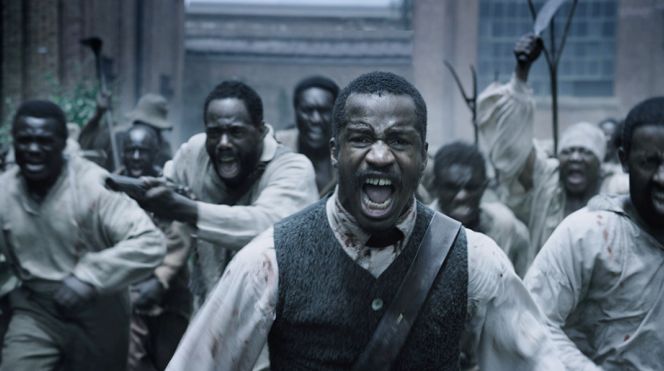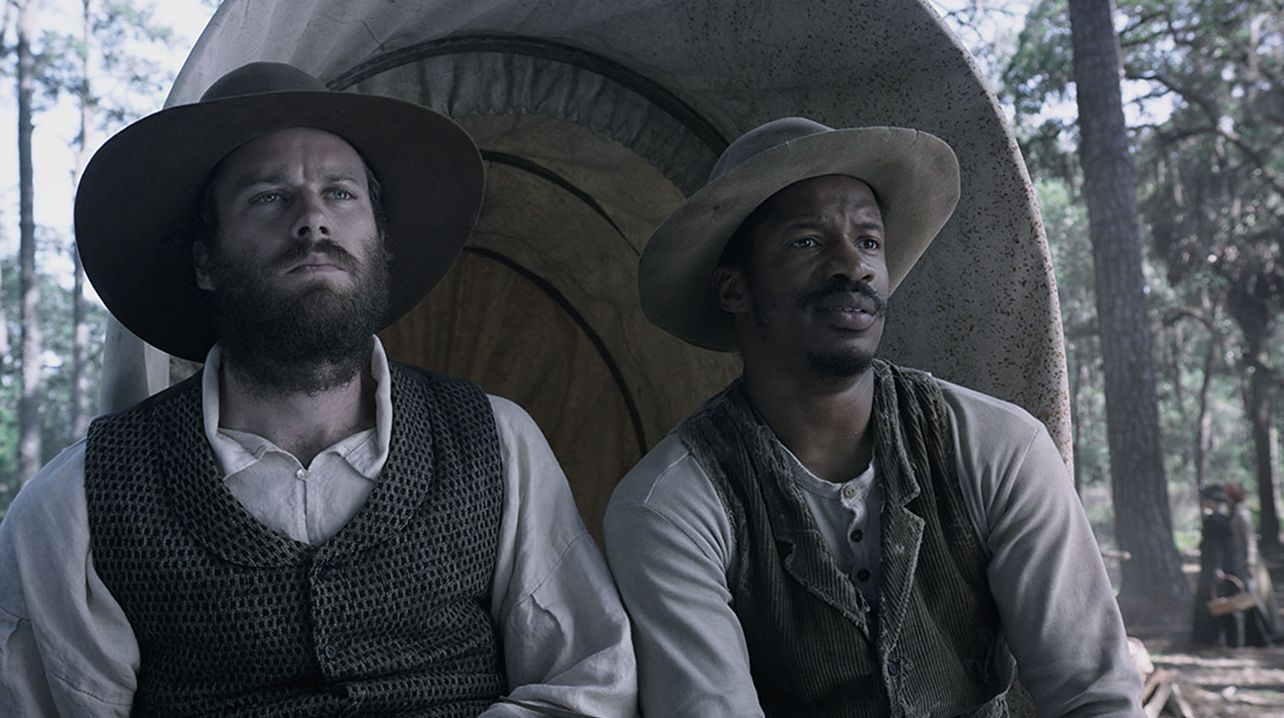
"The Birth of a Nation" Review
 "The Birth of a Nation" enters theaters with a great deal of baggage. The historical drama was screened at Sundance in January to rave reviews and purchased by Fox Searchlight for a record-breaking $17.5 million. The studio hoped to have another Best Picture winner on their hands, just three years after "12 Years a Slave" earned top honors at the Oscars, Golden Globes and Critics Choice Awards.
"The Birth of a Nation" enters theaters with a great deal of baggage. The historical drama was screened at Sundance in January to rave reviews and purchased by Fox Searchlight for a record-breaking $17.5 million. The studio hoped to have another Best Picture winner on their hands, just three years after "12 Years a Slave" earned top honors at the Oscars, Golden Globes and Critics Choice Awards.
But over the summer, the personal life of "The Birth of a Nation"'s star, writer, director and producer, Nate Parker ("Non-Stop", "The Great Debaters") was brought into the limelight. Details of a 1999 rape allegation and charge, and subsequent trial and acquittal, resurfaced, with the fallout grabbing headlines, overshadowing anticipation for the film and all but destroying the movie's chances for serious consideration this awards season.
This review of "The Birth of a Nation" is solely based on what I witnessed on screen, with no influence whatsoever from the controversy. As much I wanted to be moved, I couldn't help but be bothered by how much Parker wants us to be emotionally enthralled. This is an overly forceful film that never attains extraordinary results.
"The Birth of a Nation" is the true-life story of Nat Turner (played by Parker), best known for leading the most successful slave rebellion in U.S. history. It took place in Southampton County, Virginia in August 1831. A son and grandson of slaves, Nat, at a young age, was provided the unique opportunity to learn how to read by the sister of his white slave master. The book he was taught was the Bible. As he got older, Nat not only worked in the cotton fields, but began preaching. He soon was being hired-out by his master Samuel Turner (Armie Hammer) to other plantations, whose owners wanted Nat to preach scripture to their slaves, convincing them that they should stay obedient, even under the terrible conditions of slavery. Eventually, Turner realizes the God in the Bible is not only forgiving, but vengeful. And Nat believes he's been chosen by God to lead the rebellion.

The pacing for the first hour of "The Birth of a Nation" is quite slow. Parker has a difficult time finding a rhythm, resulting in a very jagged feel. The most interesting element early-on is the relationship between Nat and fellow slave Cherry (Aja Naomi King). Their scenes together are quite good. The screenplay has strength and intensity, and there are legitimate moments of power, particularly the scenes in which Nat witnesses, first hand, the true plight of his people, seeing that his words, alone, cannot help them.
But Parker ultimately resorts to a conventional and overly-dramatic approach to the climactic rebellion, with graphic scenes of violence and bloodshed, and extreme use of sound effects. Heavy-handed symbolism accompanies this section, in which Turner is glorified as a true hero, even going so far as resorting to fictionalizing the scene in which the slave rebel is eventually captured.
"The Birth of a Nation" is a solid effort by Parker, especially considering all the hats he wore in making the film (writer, director, producer and star). But, ultimately, we're left wishing for a more complicated and multi-layered treatment of this important figure of American history than the one we're provided.


